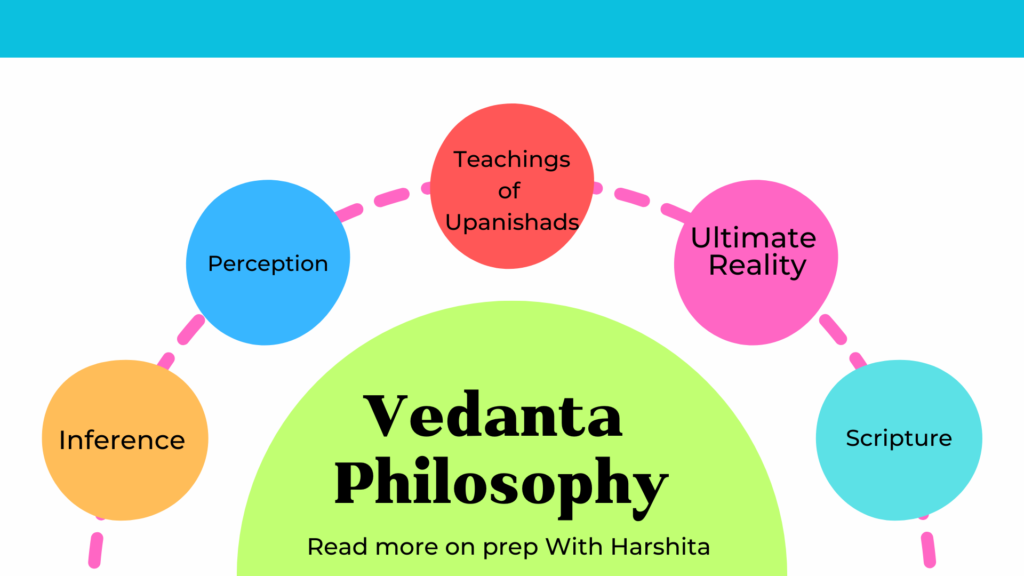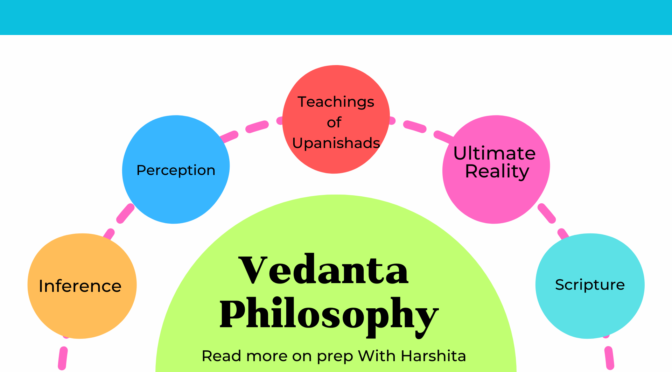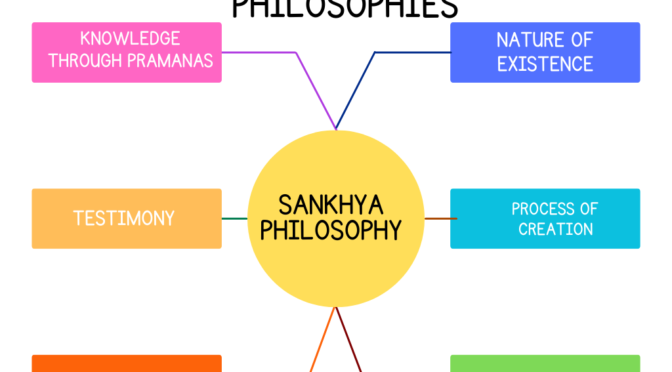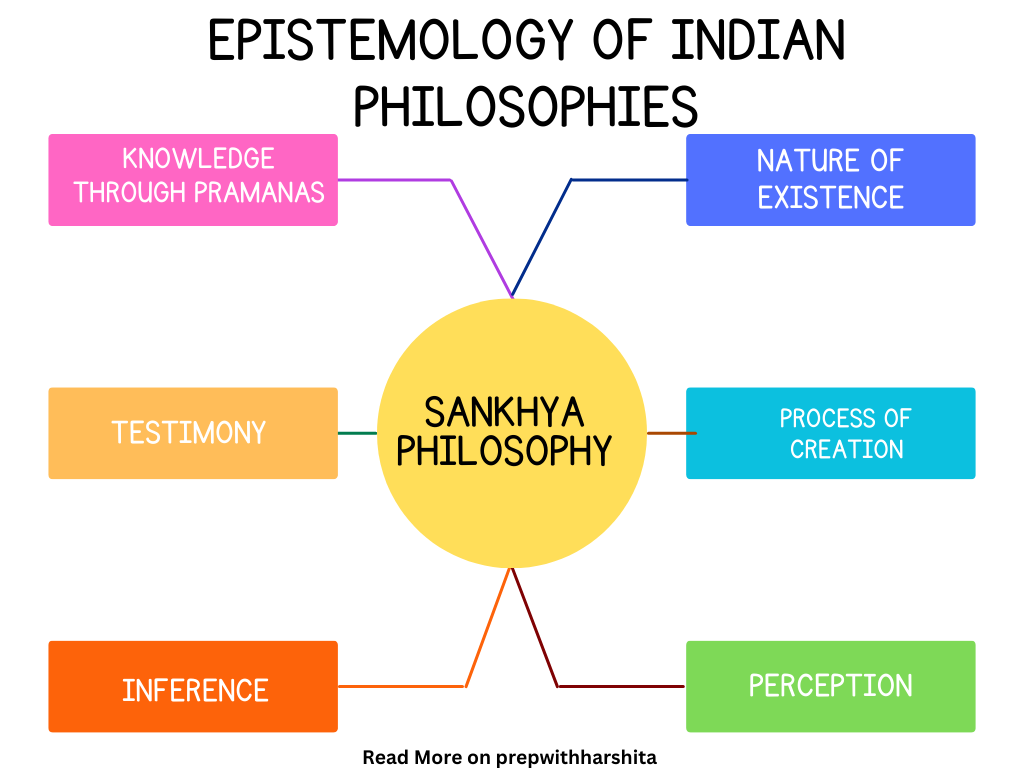Vedanta Philosophy is a school of Hindu philosophy that is based on the teachings of the Upanishads, which are considered to be the concluding portions of the Vedas, the oldest and most revered scriptures of Hinduism.
The word “Vedanta” literally means “end of the Vedas.”
Vedanta philosophy is centered around the idea of the ultimate reality, which is called Brahman. Brahman is considered to be the unchanging, eternal, and infinite reality that underlies all of creation. According to Vedanta, the ultimate goal of human life is to realize this ultimate reality and to become one with it.
Three main Schools of Vedanta Philosophy :
There are three main schools of Vedanta philosophy: Advaita Vedanta, Vishishtadvaita Vedanta, and Dvaita Vedanta.
Advaita Vedanta, which was founded by the 8th-century philosopher Adi Shankara, holds that Brahman is the only reality and that everything else, including the individual self (Atman), is an illusion. According to this school, the goal of human life is to realize this ultimate reality and to transcend the illusion of individual existence.
Vishishtadvaita Vedanta, which was founded by the 11th-century philosopher Ramanuja, holds that Brahman is the ultimate reality, but that the individual self is also real and distinct from Brahman. According to this school, the goal of human life is to realize the unity between the individual self and Brahman.
Dvaita Vedanta, which was founded by the 13th-century philosopher Madhva, holds that both Brahman and the individual self are real and distinct entities. According to this school, the ultimate goal of human life is to attain devotion to God and to attain eternal life in the presence of God.
Overall, Vedanta philosophy has had a profound impact on Indian culture and has influenced many spiritual traditions both within and outside of India.
Epistemology of Vedanta Philosophy:
Epistemology is the branch of philosophy that deals with knowledge and belief.
In Vedanta philosophy, epistemology is closely tied to the concept of ultimate reality, or Brahman.
According to Vedanta, there are three means of knowledge or pramanas:
Perception inference, and scripture. Perception refers to direct observation through the senses, inference refers to logical reasoning, and scripture refers to the Vedas and other sacred texts.
However, Vedanta holds that these means of knowledge are limited and cannot provide true knowledge of ultimate reality. Instead, the only way to know Brahman is through direct experience, which is achieved through spiritual practice such as meditation, contemplation, and devotion.
Vedanta also acknowledges the limitations of language and concepts in describing ultimate reality. Brahman is beyond all dualities and cannot be fully described or understood through language or thought.
Therefore, Vedanta places a great emphasis on personal experience and realization of ultimate reality, rather than mere intellectual understanding. The goal of Vedanta is not simply to accumulate knowledge, but to transcend the limitations of the mind and attain direct experience of the ultimate reality.
Also Read : Sankhya Philosophy

Also Visit: Prep with Harshita



